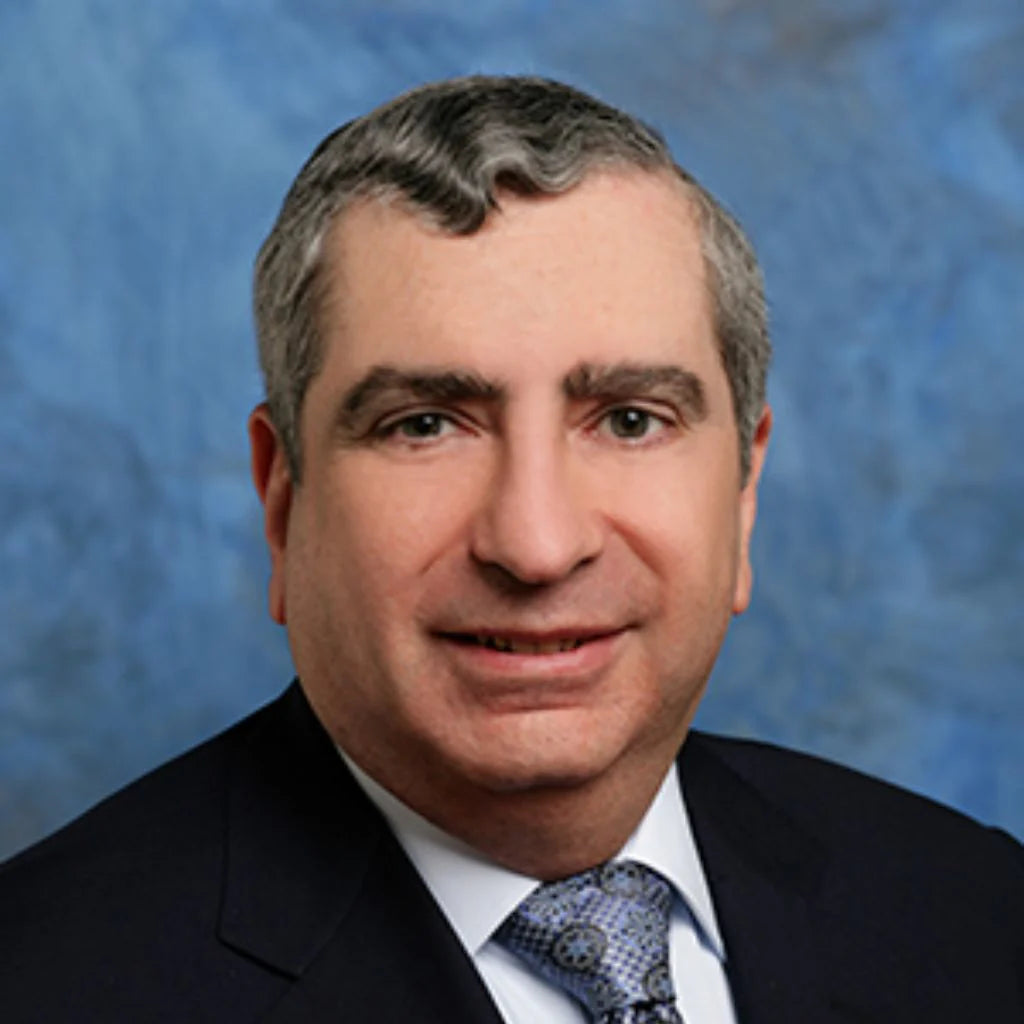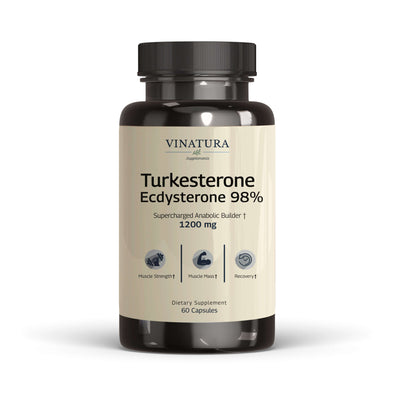
How Much Does Shilajit Increase Testosterone? In Females And Males
For millions of years, humans have been utilizing the powerful health benefits of a naturally occurring substance known as Shilajit, found in the Himalayas.
This versatile mineral supplement has been used to manage many medical issues, and it recently gained traction for its purported ability to provide an additional boost in testosterone production.
But how does this natural remedy increase testosterone? Can both males and females benefit from Shilajit?
In this blog post, we will explore what scientific studies have revealed about "How much does shilajit increase testosterone?" in both males and females.
Before exploring further, please read the disclaimer located at the end of this webpage.
What Exactly Is Testosterone, And Why Is It So Important?

Testosterone, a steroid hormone, plays a vital role in the development of male sex characteristics. This includes the growth of facial and body hair, the deepening of the voice, and the development of muscles and bones. It also has a significant impact on sperm production and sex drive [1].
Moreover, testosterone is essential for sperm production, making it a critical factor in male fertility. Men with low testosterone levels may encounter difficulties in conceiving a child, emphasizing the significance of adequate testosterone levels [2].
Furthermore, testosterone contributes to maintaining bone health by helping to preserve bone density. Men with low testosterone levels are at an increased risk of developing osteoporosis, a condition characterized by weakened and brittle bones [3].
Beyond its specific roles, testosterone levels have been demonstrated to have a broader impact on overall health and well-being. Men with low testosterone levels may experience a range of symptoms, including fatigue, low mood, and decreased energy levels, underscoring the importance of monitoring and maintaining optimal testosterone levels for overall health optimization [4].
Read more: Does Shilajit Increase Sperm Count?
How Does Low Testosterone Affect Your Health?

Insufficient levels of testosterone, medically referred to as hypogonadism, can significantly impact a man's physical and mental well-being. This common condition affects around 10% of men aged 35 and above, with its prevalence increasing as one gets older [5].
Reduced testosterone levels can lead to erectile dysfunction, diminished libido, and decreased sexual satisfaction. These changes in sexual function can have a profound impact on intimate relationships and overall quality of life [6].
Inadequate testosterone can contribute to muscle mass loss, increased body fat, and decreased bone density, potentially leading to sarcopenia and osteoporosis [7]. This can result in reduced strength, impaired mobility, and an increased risk of fractures.
Low testosterone may manifest as fatigue, low mood, irritability, depression, and impaired cognitive function. These emotional and cognitive changes can affect daily life activities, work performance, and overall mental well-being [8].
Insufficient testosterone has been associated with an elevated risk of cardiovascular diseases, type 2 diabetes, and metabolic syndrome [9]. Addressing low testosterone levels is crucial to mitigate these potential health risks.
Explore more: Shilajit Dosage For Erectile Dysfunction - ED?
Does Shilajit Increase Testosterone?
Now comes the central question: Does shilajit increase testosterone? As a natural mineral substance with a rich history in traditional Indian medicine, Shilajit has been revered for its numerous health benefits for centuries [10].
This unique substance is believed to offer many advantages, including enhanced energy levels, a strengthened immune system, and increased libido, making it highly sought after by many.
Shilajit has been proven to increase testosterone levels in men through a clinical study conducted in 2015 by Shrihari Pandit [11]. Male volunteers aged 45 to 55 were supplemented with 250mg of Shilajit twice daily for 3 consecutive months.
The results showed that the Shilajit group had a significant increase in testosterone compared to the placebo group. This means that Shilajit supplementation could potentially improve sexual function in men with erectile dysfunction.
How Much Does Shilajit Increase Testosterone?
How much does shilajit increase testosterone? The amount by which shilajit increases testosterone is not well-defined. There is limited scientific evidence to support the claim that shilajit can increase testosterone levels, and the studies that have been done have yielded mixed results.
The study involved 36 men with low testosterone. Participants were randomly assigned to take either shilajit or a placebo every day for 60 days. Testosterone levels were measured at the beginning and end of the study. The results showed that shilajit supplementation increased testosterone levels by an average of 18% [12].

Potential Side Effects And Precautions When Using Shilajit
Side Effects
Consuming a supplement like shilajit may have potential side effects. Due to limited research, little is known about the safety of using shilajit in the short or long term. However, there are some concerns and possible side effects, including:
Shilajit may increase iron levels, as found in animal model studies. Therefore, individuals with conditions such as hemochromatosis (excess iron in the blood) should avoid using it until further human studies can be completed.
Raw or unprocessed shilajit may be contaminated with heavy metals or fungi that can cause illness [13].
Precautions
Pregnant or breastfeeding individuals, as well as children, are advised to refrain from consuming shilajit in any form due to potential risks. Additionally, it is recommended to exercise caution and avoid shilajit if you have hemochromatosis or if you have concerns related to testosterone levels. Taking these precautions ensures the well-being and safety of individuals in these specific circumstances.
Guide On Incorporating Shilajit Into Daily Routine
Shilajit is available in refined powder or liquid form, commonly known as shilajit extract. It is widely used in daily dietary supplements, either as pre-dosed capsules or as an extract that can be added to breakfast cereals or consumed with milk. The recommended daily dosage is 300 to 500 mg [14].
Read more: 7 Best Shilajit Supplements to Improve Immune System
Frequently Asked Questions
Does Shilajit Build Muscle?
While not a direct muscle-building supplement, Shilajit may indirectly support muscle growth and recovery. Shilajit influences testosterone levels, an essential hormone involved in muscle growth and development. It also contains compounds that may modulate other hormones involved in metabolism and muscle maintenance.
How Long Does It Take To See Results From Shilajit?
Most experts recommend taking shilajit for at least 2-3 months to see significant results.
Can Shilajit Cause Drug Interactions?
Shilajit may interact with certain medications, including blood thinners and medicines for high blood pressure. If you are currently taking any medications, it is crucial to consult with a healthcare professional before using Shilajit to ensure its safety.
What Is The Difference Between Shilajit And Fulvic Acid?
Shilajit and fulvic acid are complex substances found in the Himalayan mountains. However, they are not the same thing. Shilajit is a resinous exudate, while fulvic acid is a humic substance. Fulvic acid is One Of The Components Of Shilajit.
Does Shilajit Increase Testosterone In Females?
Shilajit can enhance testosterone levels in both men and women. Nevertheless, it's important to note that hormone levels will never surpass the body's natural levels.
Conclusion
While some preliminary studies suggest that shilajit may have the potential to increase testosterone levels in both males and females, more rigorous research is needed to confirm these findings to answer "How much does shilajit increase testosterone?". It is essential to consult with a healthcare professional before taking shilajit or any other supplement, especially if you have any underlying health conditions or are taking medications.
References
- [1] Nassar, G. N., Raudales, F., & Leslie, S. W. (2020). Physiology, Testosterone. PubMed; StatPearls Publishing. https://www.ncbi.nlm.nih.gov/books/NBK526128/
- [2] Di Guardo, F., Vloeberghs, V., Bardhi, E., Blockeel, C., Verheyen, G., Tournaye, H., & Drakopoulos, P. (2020). Low Testosterone and Semen Parameters in Male Partners of Infertile Couples Undergoing IVF with a Total Sperm Count Greater than 5 Million. Journal of Clinical Medicine, 9(12), 3824. https://doi.org/10.3390/jcm9123824
- [3] National Institute of Arthritis and Musculoskeletal and Skin Diseases. (2019). Osteoporosis. National Institute of Arthritis and Musculoskeletal and Skin Diseases. https://www.niams.nih.gov/health-topics/osteoporosis
- [4] Fletcher, J. (2023). Low testosterone: 12 signs and symptoms. Www.medicalnewstoday.com. https://www.medicalnewstoday.com/articles/322647
- [5] Bac Hoai Nguyen, Long, H., Thang Nguyen Cao, Quan Pham Minh, & Jannini, E. A. (2023). Testosterone and aging male, a perspective from a developing country. The Aging Male, 26(1). https://doi.org/10.1080/13685538.2023.2223712
- [6] Corona, G., & Maggi, M. (2022). The role of testosterone in male sexual function. Reviews in Endocrine and Metabolic Disorders. https://doi.org/10.1007/s11154-022-09748-3
- [7] Curtis, E., Litwic, A., Cooper, C., & Dennison, E. (2015). Determinants of Muscle and Bone Aging. Journal of Cellular Physiology, 230(11), 2618–2625. https://doi.org/10.1002/jcp.25001
- [8] Rodgers, S., grosse Holtforth, M., Hengartner, M. P., Müller, M., Aleksandrowicz, A. A., Rössler, W., & Ajdacic-Gross, V. (2015). Serum Testosterone Levels and Symptom-Based Depression Subtypes in Men. Frontiers in Psychiatry, 6. https://doi.org/10.3389/fpsyt.2015.00061
- [9] Muraleedharan, V., & Jones, T. H. (2010). Review: Testosterone and the metabolic syndrome. Therapeutic Advances in Endocrinology and Metabolism, 1(5), 207–223. https://doi.org/10.1177/2042018810390258
- [10] Carrasco-Gallardo, C., Guzmán, L., & Maccioni, R. B. (2012). Shilajit: A Natural Phytocomplex with Potential Procognitive Activity. International Journal of Alzheimer’s Disease, 2012, 1–4. https://doi.org/10.1155/2012/674142
- [11] Pandit, S., Biswas, S., Jana, U., De, R. K., Mukhopadhyay, S. C., & Biswas, T. K. (2015). Clinical evaluation of purified Shilajit on testosterone levels in healthy volunteers. Andrologia, 48(5), 570–575. https://doi.org/10.1111/and.12482
- [12] Lazarev, A., & Bezuglov, E. (2021). Testosterone Boosters Intake in Athletes: Current Evidence and Further Directions. Endocrines, 2(2), 109–120. https://doi.org/10.3390/endocrines2020011
- [13] Velmurugan, C., Vivek, B., Wilson, E., Bharathi, T., & Sundaram, T. (2012). Evaluation of safety profile of black shilajit after 91 days repeated administration in rats. Asian Pacific Journal of Tropical Biomedicine, 2(3), 210–214. https://doi.org/10.1016/s2221-1691(12)60043-4
- [14] Meena, H., Pandey, H., Arya, M., & Ahmed, Z. (2010). Shilajit: A panacea for high-altitude problems. International Journal of Ayurveda Research, 1(1), 37. https://doi.org/10.4103/0974-7788.59942
Author

Product Disclaimer
The dietary supplement products mentioned on this website are formulated based on scientific research and adhere to FDA guidelines for dietary supplements. However, the content of the articles has not been evaluated by the Food and Drug Administration (FDA) and is not intended to promote or endorse any specific product. Any products sold on this website are not intended to diagnose, treat, cure, or prevent any disease.
Opinions and Endorsements
Any claims, statements, or opinions expressed in the articles are those of the author(s) and do not necessarily reflect the views or opinions of the manufacturers of the dietary supplement products. The products sold on this website are separate from the content of the articles and are not directly endorsed or associated with the information presented here.
Liability Disclaimer
The author(s) of the articles, website, and manufacturers of the dietary supplement products do not assume any liability for any potential consequences arising from the use of the information provided in the articles. It is recommended that individuals consult with a qualified healthcare professional before making any dietary or lifestyle changes, including the use of dietary supplements.
Product Usage
Please refer to the product labels and packaging for specific usage instructions and guidelines for the dietary supplement products sold on this website.
Customer Support
For any concerns or questions regarding the dietary supplement products, please contact our customer support team, who will be more than happy to assist you.






Leave a Comment
Be the first to comment.
What do you think?